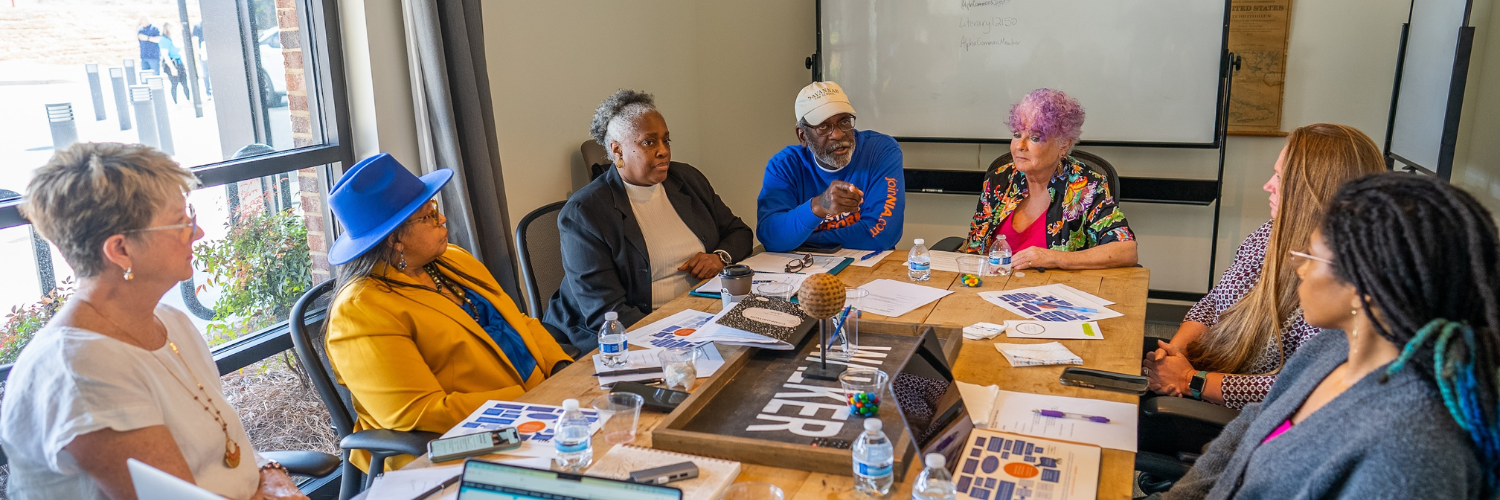
Assigned to the Cloud Crew: The National Incarceration Association’s Hybrid Case Management for People with Behavioral Health Needs
When returning to their communities from criminal justice settings, people with behavioral health needs face barriers in accessing basic needs—including food, housing, employment, transportation, education, clothing, and substance use and mental health services—which increases their risk of experiencing a crisis. To address these barriers and support people in leading healthy lives, the National Incarceration Association (NIA) is utilizing a unique strategy to connect formerly incarcerated adults in Georgia to long-term interventions.
Their reentry program was developed under a distinct core philosophy: Crisis Mitigation and Personal Interactive Rehabilitation (CPR). CPR offers a one-stop resource approach with hybrid (in-person and virtual) service coordination and flexible case management led by volunteers and peers. By integrating a community of service providers and stakeholders to expedite long-term interventions, the NIA is striving to reduce recidivism, help people retain jobs and maintain sobriety, reunite families, and provide sustained housing for clients. CPR connects people to wraparound services and a crisis team that meets with individuals on a consistent basis to address needs before and after release. The program is funded by the Bureau of Justice Assistance’s FY 2022 Second Chance Act Improving Adult and Juvenile Crisis Stabilization and Community Reentry Program and receives technical assistance from The Council of State Governments (CSG) Justice Center.
Volunteer- and Peer-Led Flexible Case Management
The NIA has developed a flexible case management approach that is managed by volunteers and provides in-kind professional services that are peer-led. CPR constructs communication channels between people who are incarcerated and their circles of family and support. Trained NIA volunteer team members, some of whom are also peers, interact daily with current clients who are incarcerated and their loved ones to connect them with resources and coordinate reentry services before and after release.
Physical & Virtual Resource Centers
A standout feature of CPR is its hybrid program model of both physical and virtual resource centers, which are interconnected within an advanced network of human development, housing, substance use and mental health treatment, physical health and wellness, nutrition services, financial literacy and life skills, and workforce development resources. The NIA identifies eligible program participants and assigns them to the appropriate case management track: cloud crew (virtual) or ground crew (in-person). Participants assigned to the cloud crew work with volunteers offering case management services virtually due to limitations in access to the prison. The cloud crew works with family members to gather information about participants and identify the needs of each participant upon release. In partnership with CoreCivic (the owner of partner correctional, detention, and residential reentry facilities) and the Fulton County Sheriff’s Office (via the Fulton County jail), the ground crew provides case management services, aiming to integrate at least 180 formerly incarcerated people into the NIA’s reentry program over the course of three years.
High-Risk and Special Populations
The NIA receives referrals from a variety of sources, serving high-risk and special populations with unique needs. A primary referral source is Whole-Way House, a reentry housing program for women and mothers leaving state and county facilities. Case coordinators—consisting of faith leaders, licensed clinicians, and people with lived experience—contact clients who are currently incarcerated and in need of programming to encourage their participation and engagement. They also accept referrals of cases that demonstrate high levels of recidivism from Georgia Alternative Courts, the Policing Alternatives & Diversion Initiative, community-based service providers, and local county jails across the metro Atlanta area, providing diverse support to people with high needs as a one-stop resource.
This project was supported by Grant No. 15PBJA-22-GK-04895-CSCR awarded by the Bureau of Justice Assistance. The Bureau of Justice Assistance is a component of the Office of Justice Programs, which also includes the Bureau of Justice Statistics, the National Institute of Justice, the Office of Juvenile Justice and Delinquency Prevention, the Office for Victims of Crime, and Office of Sex Offender Sentencing, Monitoring, Apprehending, Registering, and Tracking. Points of view or opinions in this document are those of the author and do not necessarily represent the official position or policies of the U.S. Department of Justice.
Photo Credit: Photo provided courtesy of the NIA.
New Hampshire Department of Corrections Commissioner Helen Hanks presents at the Medicaid and Corrections Policy Academy in-person meeting.
Read MoreThe Council of State Governments (CSG) Justice Center has launched the Collaborating for Youth and Public Safety Initiative…
Read MoreA bipartisan group of 88 lawmakers, led by Representatives Carol Miller (R-WV) and Danny Davis (D-IL), wrote a…
Read More Meet the Medicaid and Corrections Policy Academy Mentor States
Meet the Medicaid and Corrections Policy Academy Mentor States
New Hampshire Department of Corrections Commissioner Helen Hanks presents at the Medicaid…
Read More Six States Commit to Improving Statewide Strategies to Address Youth Crime, Violence and Behavioral Health
Six States Commit to Improving Statewide Strategies to Address Youth Crime, Violence and Behavioral Health
The Council of State Governments (CSG) Justice Center has launched the Collaborating…
Read More Bipartisan Group of 88 Lawmakers Push for Continued Funding for Reentry and Recidivism Programs
Bipartisan Group of 88 Lawmakers Push for Continued Funding for Reentry and Recidivism Programs
A bipartisan group of 88 lawmakers, led by Representatives Carol Miller (R-WV)…
Read More










